Embarking on the 12-Day Everest Base Camp Trek from Kathmandu is a captivating journey through the heart of the majestic Himalayas. Trekkers can expect a thrilling adventure, seeing the region’s rich culture and awe-inspiring natural wonders. Priced between £850.97 and £945.52 per person, this expertly curated package offers a comprehensive experience, from essential permits to experienced guides, ensuring a secure and unforgettable trek. While the itinerary promises breathtaking vistas and meaningful encounters, there’s more to uncover about the unique challenges and rewards that await those who embark on this exceptional Everest odyssey.
Key Points
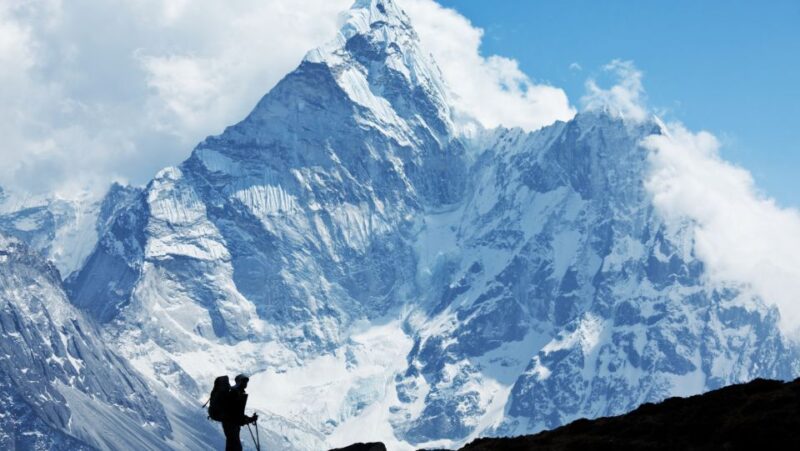
- A 12-day trekking journey from Kathmandu to Everest Base Camp, with prices ranging from £850.97 to £945.52 per person.
- Highlights include scenic views of Mount Everest, immersion in Sherpa culture, and visits to ancient monasteries.
- The package includes permits, transportation, meals, accommodation, and an experienced English-speaking guide.
- Moderate fitness level is required, and group size is limited to a maximum of 14 participants.
- Necessary documentation, such as Sagarmatha National Park Entry Permit and TIMS card, is provided by the tour operator.
Overview and Pricing
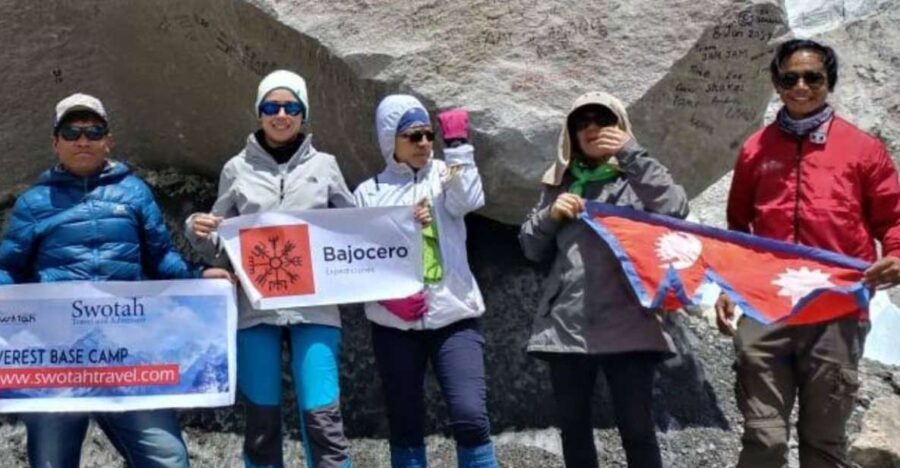
The Everest Base Camp Trek is a 12-day trekking adventure that takes adventurers from Kathmandu to the base camp of the world’s highest mountain, Mount Everest.
This trek is priced from £850.97 to £945.52 per person, with the option to save up to 10% off the full cost.
Travelers can also take advantage of free cancellation up to 24 hours in advance for a full refund, as well as a reserve now and pay later option.
This comprehensive trek includes all necessary permits, transportation, meals, accommodation, and an experienced English-speaking guide to ensure a seamless and memorable journey to the iconic Everest Base Camp.
Ready to hit more trails? More hiking adventures we feature in Lukla
Itinerary Highlights
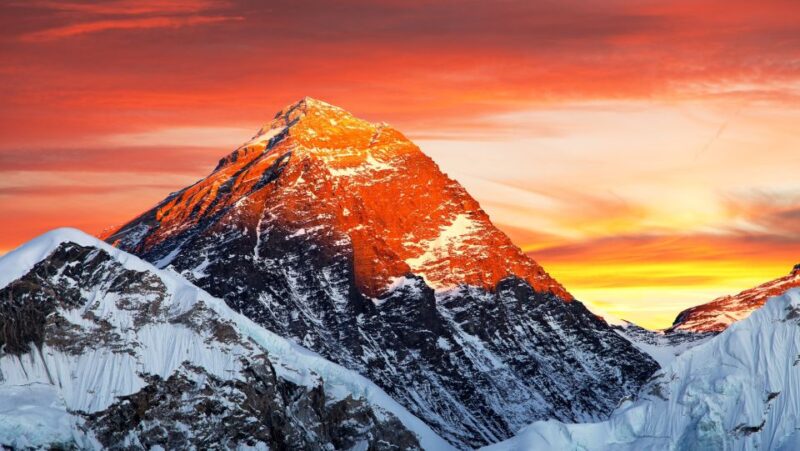
Adventurers on the Everest Base Camp Trek embark on a captivating 12-day journey, starting with a flight to Lukla and trekking to Phakding at an elevation of 2656 meters on the first day.
The second day sees them ascend to Namche at 3450 meters, where they can explore or rest.
Day 3 is for acclimatization, with a hike around Khunde and Khumjung.
The trek continues to Tengboche at 3870 meters, home to the famous Tengboche Monastery, before reaching Dingboche at 4410 meters, offering stunning views of Mount Everest and Ama Dablam.
Further acclimatization takes place in Dingboche on Day 6, preparing them for the challenges ahead.
Experience and Activities
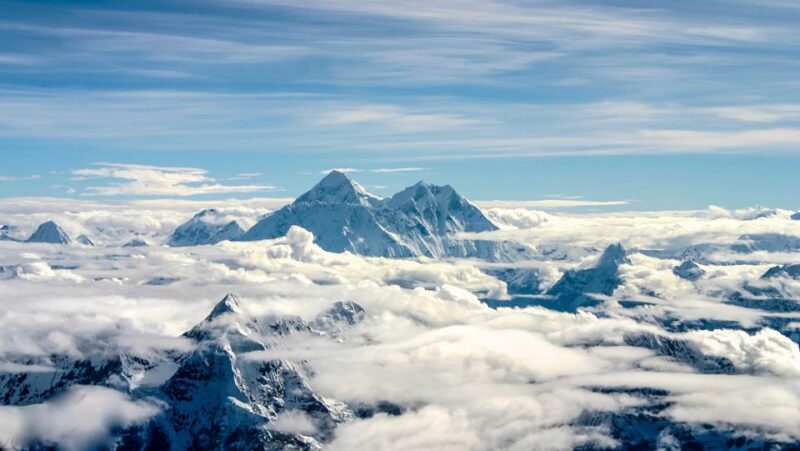
Marveling at the majestic Mount Everest and its awe-inspiring scenic vistas is a highlight of the Everest Base Camp Trek.
Trekkers walk through charming Sherpa villages, seeing the captivating local culture. They’ll also visit ancient monasteries, including the revered Tengboche Monastery, to gain insights into the rich spiritual traditions of the region.
The challenging ascent to Kala Patthar rewards adventurers with breathtaking panoramic views of the world’s highest peaks.
Traversing through the Sagarmatha National Park, a UNESCO World Heritage site, trekkers witness the stunning natural beauty and diverse wildlife of this magnificent Himalayan landscape.
Inclusions
What makes the Everest Base Camp Trek an appealing option are the numerous inclusions that come with the package.
Travelers enjoy airport transfers with private vehicle escort, trekking permits and necessary paperwork, and food, accommodation, and insurance for the staff.
Plus, the trek includes two-way airfare between Kathmandu and Lukla, an authorized English-speaking guide, travel and rescue insurance, as well as tips for guides, porters, and drivers.
For groups over three, porter service is also provided.
These comprehensive inclusions ensure a hassle-free and well-supported trek, allowing participants to focus on the stunning landscapes and culture during their journey to the base camp of the world’s highest mountain.
More Great Thing To Do NearbyImportant Information
For the Everest Base Camp Trek, the group size is limited to a maximum of 14 participants to ensure a personalized and comfortable experience.
Pickup from Kathmandu is available, though the trek isn’t recommended for children under 16 or individuals prone to motion sickness. Plus, while the itinerary is carefully planned, it remains subject to change due to unforeseen circumstances such as weather conditions or trekking route modifications.
The trek is best suited for adventurous travelers with a moderate fitness level, as the high-altitude environment can be challenging.
It’s essential to follow the guidance of the experienced, English-speaking guide throughout the journey to ensure a safe and enjoyable experience.
With the necessary permits, insurance, and logistical support provided, participants can focus on seeing the stunning Himalayan landscape.
Trekking Permit and Paperwork
Securing the proper trekking permits and paperwork is a crucial component of the Everest Base Camp trek. Participants must obtain the necessary documentation, including a Sagarmatha National Park Entry Permit and Trekking Information Management System (TIMS) card, prior to the commencement of the journey.
These permits ensure that trekkers are authorized to access the national park and are registered with the authorities. The process typically involves submitting passport information and paying the required fees.
Experienced tour operators can typically handle the permit acquisition on behalf of their clients, streamlining the logistics. Proper documentation not only ensures a smooth trek but also supports the local authorities’ efforts to manage and protect the fragile Himalayan ecosystem.
Accommodation and Meals
The accommodations along the Everest Base Camp trek consist primarily of teahouses, which are traditional Nepali-style lodges found throughout the Khumbu region.
These teahouses provide basic but comfortable lodging, often with shared bathroom facilities.
Meals, on the other hand, are typically hearty and substantial, featuring local Sherpa cuisine, as well as international dishes to cater to trekkers’ preferences.
Breakfast, lunch, and dinner are usually included in the trek package, ensuring that trekkers are well-fed and energized for the day’s activities.
The menu often includes local staples like dal (lentil soup), rice, and curried vegetables, as well as options like pasta, pizza, and freshly baked breads.
Emergency and Safety Measures
Trekkers’ safety is paramount during the Everest Base Camp trek, and the tour operators work diligently to ensure all necessary emergency and safety measures are in place. First-aid kits and oxygen tanks are carried by the guide and porters, and emergency evacuation plans are established in case of injury or illness. Satellite phones and radios enable constant communication with the base camp and local authorities. A comprehensive insurance policy covering rescue and medical expenses is provided to all participants. Plus, the tour operators closely monitor weather conditions and adjust the itinerary accordingly to minimize risks. Ultimately, the safety of trekkers is the top priority throughout the entire journey.
| Emergency Measures | Safety Precautions |
|---|---|
| First-aid Kits | Satellite Phones |
| Oxygen Tanks | Weather Monitoring |
| Evacuation Plans | Comprehensive Insurance |
| Communication Devices | Flexible Itinerary |
| Local Authorities | Guide Expertise |
Frequently Asked Questions
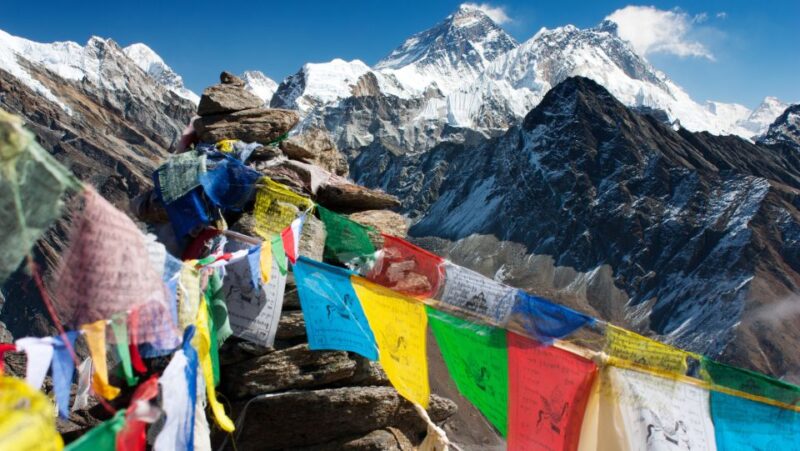
Can I Bring My Own Porter or Guide?
Participants can’t bring their own porter or guide. The trek package includes an authorized English-speaking guide, and porter service is provided for groups over three. Bringing your own guide or porter is not permitted on this organized trek.
What Are the Requirements for the Trekking Permit?
The trekking permit required for the Everest Base Camp trek includes obtaining a Sagarmatha National Park permit and a Trekkers’ Information Management System card. Specific details on permit requirements may vary, so travelers should check with their trek operator for the latest information.
Is There an Option to Extend or Shorten the Trek?
The tour operator offers flexible options to extend or shorten the trek. Participants can customize the itinerary based on their fitness level and available time. Additional days can be added for further exploration or the trek can be shortened as needed.
What Is the Best Time of Year to Do This Trek?
The best time of year for the Everest Base Camp trek is during the spring (March to May) or autumn (September to November) seasons. These periods offer optimal weather conditions, clearer views, and fewer crowds on the trails.
Can I Rent or Buy Gear in Kathmandu Before the Trek?
Yes, trekkers can easily rent or purchase necessary gear like hiking boots, jackets, and sleeping bags in Kathmandu before the trek. There are many outdoor stores that cater to trekkers, offering quality equipment at reasonable prices.
Recap
The 12-day Everest Base Camp trek from Kathmandu offers an unforgettable journey through the breathtaking Himalayan landscape.
With a well-curated itinerary, experienced guides, and comprehensive safety measures, this trek provides an exhilarating cultural and adventurous experience for trekkers.
Priced competitively, the package includes essential permits, accommodations, and meals, making it an accessible option for those seeking to conquer the iconic Kala Patthar and witness the grandeur of Mount Everest.
You can check if your dates are available here:More Hiking & Trekking Tours in Lukla
More Tour Reviews in Lukla
Not for you? Here's more things to do in Lukla we have recnetly reviewed
- 11 Best Helicopter Flights And Tours In Lukla
- 3 Best Private Car With Driver Services In Lukla
- 9 Best Tours In Lukla
- 7 Best Hiking And Trekking Tours In Lukla
- Everest Base Camp With Cho La & Renjo La Pass Trek – 19 Days
- Kathmandu: Everest Base Camp Helicopter Tour With Breakfast
- Everest Scenic Mountain Flight With Guaranteed Window Seat
- Everest Base Camp Trek
- Kathmandu: Mt. Everest Scenic Flight by Airplane
- Everest Base Camp Classic Trek
- Mera Peak Climbing
- Lukla to Kathmandu Flight Tickets for Everest Trekkers
